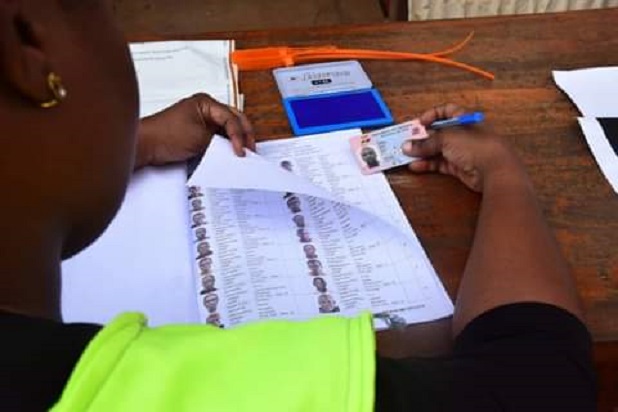Operation of Uganda Security Printing Company (USPC) that had been envisaged to aid Uganda’s democratic process may not be ready for the next election cycle – 2026, the Parliamentary Committee on Defence and Internal Affairs heard on Friday.
The committee that had visited the site at Entebbe to assess progress and evaluate value for money heard that the National Identification and Registration Authority (NIRA) had refused to cooperate by stubbornly refusing to give business to USPC.
George Mugerwa, company general manager and Mwesigwa Moses Kamanyire who represented Board chairman disclosed that the company, a public-private partnership between the Government of Uganda (51%) and a German firm Veridos (49%) was facing financial hurdles because a key partner, NIRA was negative about fulfilling its commitment.
The company is meant to operate commercially, without subvention from the national coffers. It was meant to handle very specific work – security printing, which was adjudged a strategic national interest Uganda had to stop contracting to foreign companies.
At the start of the briefing to Members of Parliament, the officers had initially used veiled language but ultimately Mugerwa made it clear that NIRA had become completely negative, denying the company revenue by refusing to commission USPC to print national identification cards and other documents of a security nature.
Mugerwa explained that there was a presidential directive owing to the strategic nature of the joint venture enterprise at hand, that national identification documents (a primary duty of NIRA) and national passports (Primarily handled by the Immigration department of the ministry of internal affairs) be tendered to USPC as part of helping it take off.
At the onset in 2018, government provided land as its initial input. Construction is ongoing and contractors say above 70% of the work has been done. The total capital up to the time of production was put at 75.4 Billion shillings, with a delivery time frame of thirty months as from May 2022 when ground was broken for the project.
This implies the contractor would have handed over by December 2024. However, management says that going by the financial hurdles, the project is already behind by six months, meaning completion of civil works will only be complete by possibly June 2025.
This means the tendering process and procurement of machinery to be fitted at the premises will already be late to serve purpose for the 2026 elections – printing voters’ cards, ballots and related materials.
USPC had as a way of building confidence of its clients to recruit technical staff but have the initial printing works done abroad. Indeed management assured the parliamentary committee that this was already happening in the case of Immigration, for whom the company is printing passports and the client is appreciating.
Mugerwa explained that, seeing that NIRA were not forthcoming arranged several meetings of management to management, later escalated to Board to Board, Permanent Secretary to Permanent Secretary and finally the minister for the Presidency had to meet her counterpart of Immigration under who NIRA falls but there seemed to be no progress.
This stand off exists inspite of an agreement to which NIRA managers appended signature. Mugerwa disclosed USPC had gone out of its way and sponsored engagements up to asking NIRA technical staff meeting with USPC’s. Trips were sponsored by USPC abroad where sample works were made, which NIRA approved quality-wise but still declined to give business to USPC.
Juliet Kajumba, USPC legal officer explained that section 4 of the agreement with NIRA spelt out the obligations of NIRA but whenever the latter’s management are reminded, “they simply say we don’t have money.”
Mugerwa explained that advantages that were envisaged at its formation and design included putting a stop of hemorrhage of the national forex coffers, creating employment for Ugandans among other strategic interests.
Some of the MPs questioned whether USPC was not simply playing role of middle men and shooting up cost of production, to which the managers said that as a nascent company naturally their prices had to be high until the company breaks even.
“Where’s the spirit of patriotism if somebody is advocating for private company, and moreover a foreign company?” Mugerwa mused.
Committee chairman Wilson Kajwengye had initially explained the committee’s mandate and the high expectations of the country as far as the company’s contribution to the democratic process.
He later kept the debate minimal saying members had understood what is on ground and would internally see what to do next. Some of the members had proposed meeting management of the two entities USPC and NIRA together to avoid unsubstantiated accusations and counter-accusations but Kajwngye ruled the committee would in-house decide what to do.
The MPs later inspected the different developments on site as project engineer Robert Hanghusi conducted and explained to them. They included; Bashir Lubega (Mubende Municipality), Godrfrey Wakooli (Butiiru county), Museveni William (Buwekula), Okeyoh Peter (Bukooli Islands), Kahonda Donozio (Ruhinda), Francis Katabazi (Kalungu East) and Joel Sseikaali (Ntwetwe).
–URN





